Unit 5: Agriculture & Complex Societies 10,000 BCE/12,000 BP–1500 CE
Just about everything we eat today started out on a farm. So, it’s easy to think that farming has always existed, but it hasn’t—humans invented it. As agriculture spread across the world, complex societies usually followed.
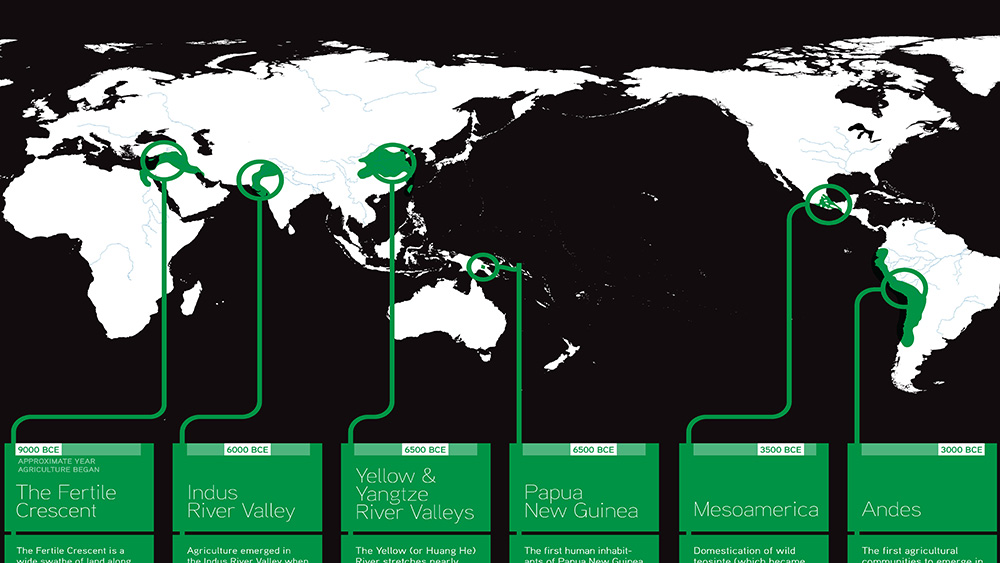
Lesson 5.1
Farming and Complexity
The invention of farming about 12,000 years ago gave humans access to new food and energy resources, which increased populations, collective learning, and complexity.
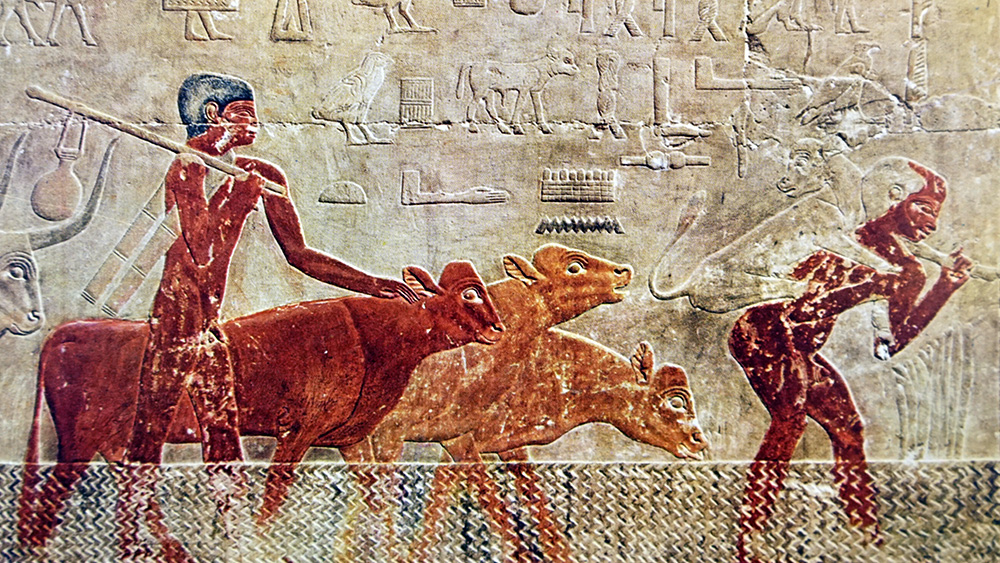
Lesson 5.2
Agricultural Revolution
In what ways did going from foraging to farming revolutionize society? Let’s dig deeper into the details of exactly how agriculture changed human life—for better and for worse.
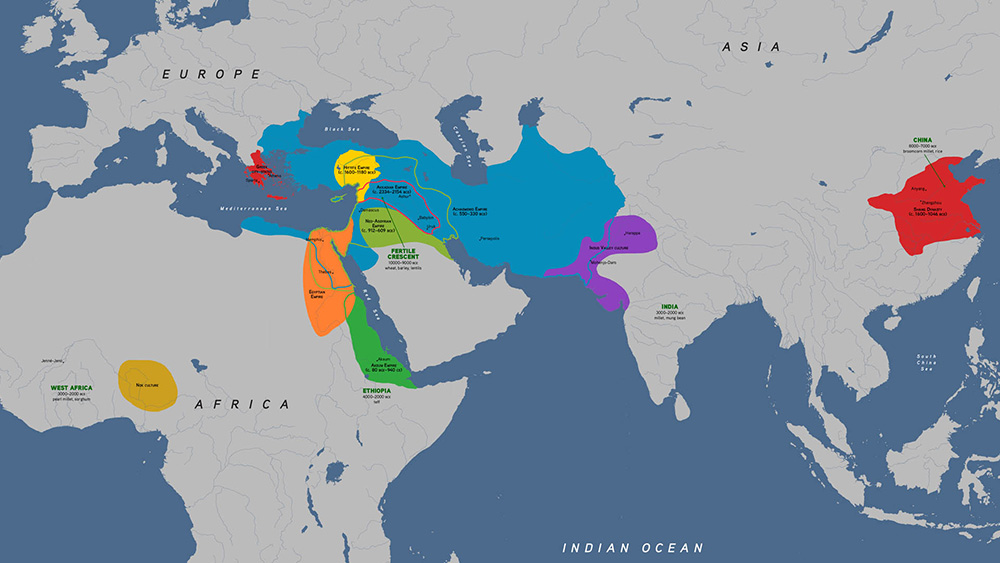
Lesson 5.3
Complex Societies Appear
Growing food in fixed locations enabled people who once migrated with the seasons to settle down. Soon, complexity increased as villages turned into cities and states.
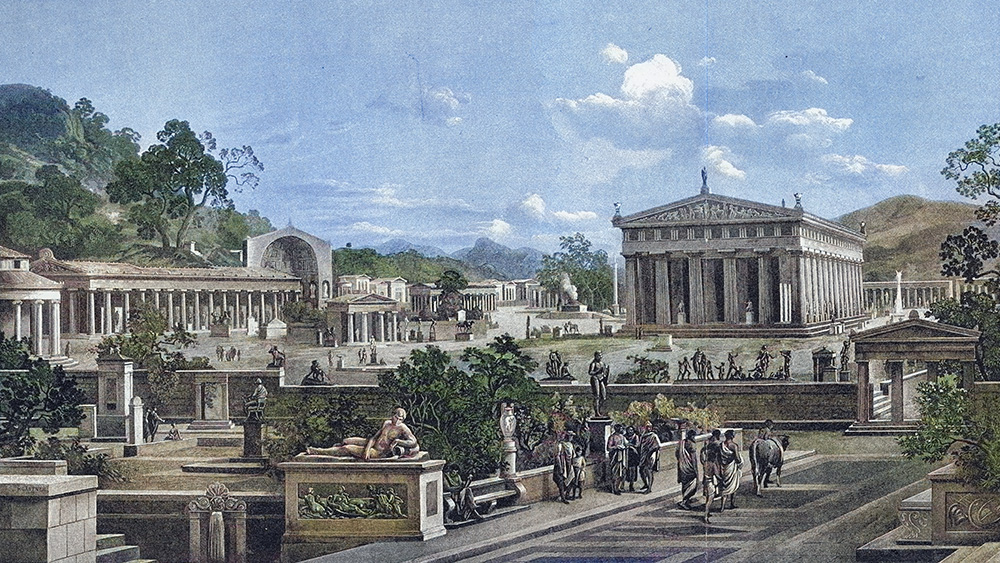
Lesson 5.4
Empires
As civilizations grew in complexity, they also grew in physical size, and that meant they started meeting their neighbors. It’s time to talk conflict, conquest, and empire.
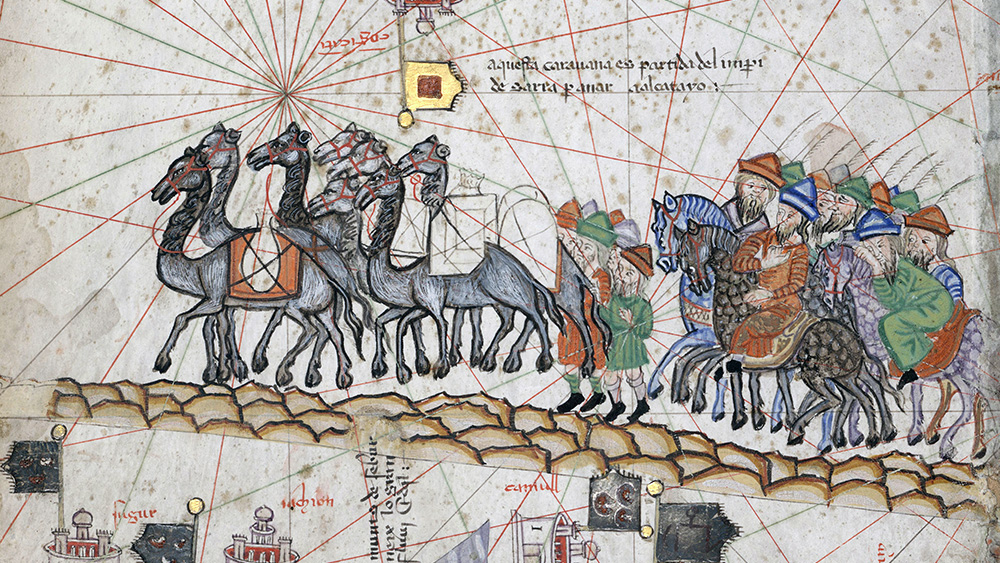
Lesson 5.5
Expanding Connections
Agriculture gave societies the spark they needed to begin growing, but it’s trade that set us on the path to the modern world. Trade routes allowed goods, ideas, people, and diseases to spread like never before.

Lesson 5.6
Museum Project
Museum exhibits tell stories about different cultures of the past. Now, it’s your turn to become a curator and create an exhibition. Will you be a mapmaker, an artifact creator, or a storyteller?
 Teaching This Unit
Teaching This Unit
Unit 5 Vocab Guide
Key Unit 5 vocabulary words and definitions.

Reading Guide
Developing reading skills for the classroom and beyond.

Differentiation Guide
Research-backed strategies for differentiation, modification, and adaptation.

Blog: What Did the Ancients Give Us?
Explore the legacy of the ancients.

Unit 5 Teaching Guide
All the lesson guides you need in one place.